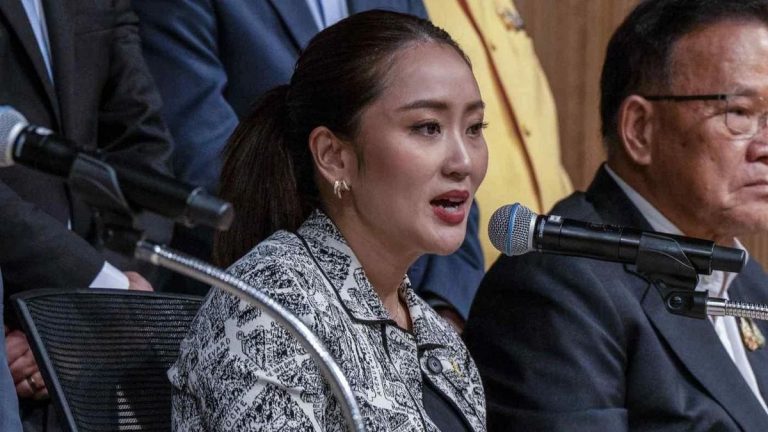
Thailand has entered a new chapter in its political history with the election of Paetongtarn Shinawatra as the country’s prime minister. At 37, she represents not only a generational shift in leadership but also the continuation of a political legacy that has shaped Thai politics for decades.
Paetongtarn Shinawatra, the youngest daughter of the former Prime Minister Thaksin Shinawatra, was elected by Thailand’s Parliament, marking a significant moment in the nation’s governance. Her election continues the influence of the Shinawatra family, a name synonymous with both popularity and controversy in Thai political circles.
The Pheu Thai Party, which has seen two previous Shinawatras at the helm, now looks to Paetongtarn to guide the country through its complex political landscape. Her appointment comes after a royal endorsement, a crucial step in the Thai political process, which solidifies her position as the head of government.
Register for Tekedia Mini-MBA edition 19 (Feb 9 – May 2, 2026): big discounts for early bird.
Tekedia AI in Business Masterclass opens registrations.
Join Tekedia Capital Syndicate and co-invest in great global startups.
Register for Tekedia AI Lab: From Technical Design to Deployment (next edition begins Jan 24 2026).
Paetongtarn’s rise to power is not without its challenges. The legacy of her father, Thaksin Shinawatra, looms large. Thaksin, a polarizing figure, was ousted by a military coup in 2006, leading to years of political unrest. Paetongtarn’s aunt, Yingluck Shinawatra, also served as prime minister before being removed from office. The family’s political saga has been marked by coups, exiles, and a persistent divide in Thai society.
Her key policies reflect a blend of progressive social stances and economic pragmatism. On the economic front, she is determined to stimulate the economy, improve universal healthcare, and leverage Thailand’s cultural “soft power” on the global stage. These policies aim to address the immediate concerns of voters about the high costs of living while also reassuring foreign investors about the stability of Thailand’s political landscape.
Paetongtarn’s approach to governance suggests a commitment to inclusivity and modernization, balancing respect for tradition with the need for reform. As she navigates the complexities of her role, the world watches with interest to see how her policies will shape the future of Thailand. Her leadership comes at a time when the country seeks to break free from cycles of political turbulence and move towards a more stable and prosperous future. With her at the helm, Thailand may well be on the path to realizing these aspirations.
Despite the turbulent history, Paetongtarn’s election signifies a potential shift towards stability and continuity. Her victory was decisive, with a substantial majority in Parliament supporting her candidacy. She has pledged to govern with an open mind and to create opportunities for all Thais to “dare to dream, dare to create, and dare to dictate their own future”.
The international community has taken note of this historic election. Leaders from around the world, including India’s Prime Minister Narendra Modi, have extended congratulations and expressed eagerness to strengthen bilateral ties with Thailand under Paetongtarn’s leadership.
As Thailand navigates the post-pandemic world, the focus will be on how Prime Minister Paetongtarn Shinawatra addresses the pressing issues facing the nation. Economic recovery, political unity, and social progress are likely to be at the forefront of her agenda. With a youthful energy and a name that carries weight, Paetongtarn has the potential to usher in a period of renewal for Thailand.
Her leadership style, policy decisions, and ability to unite a nation marked by historical divisions will be closely watched. The hope is that under her guidance, Thailand can achieve a balance between honoring its traditions and embracing the future.
As Paetongtarn Shinawatra takes on the mantle of leadership, the world watches with anticipation to see how she will shape the destiny of Thailand. It is a moment of great responsibility and opportunity, and the path she charts for the country will have lasting implications for its people and its place in the global community.



